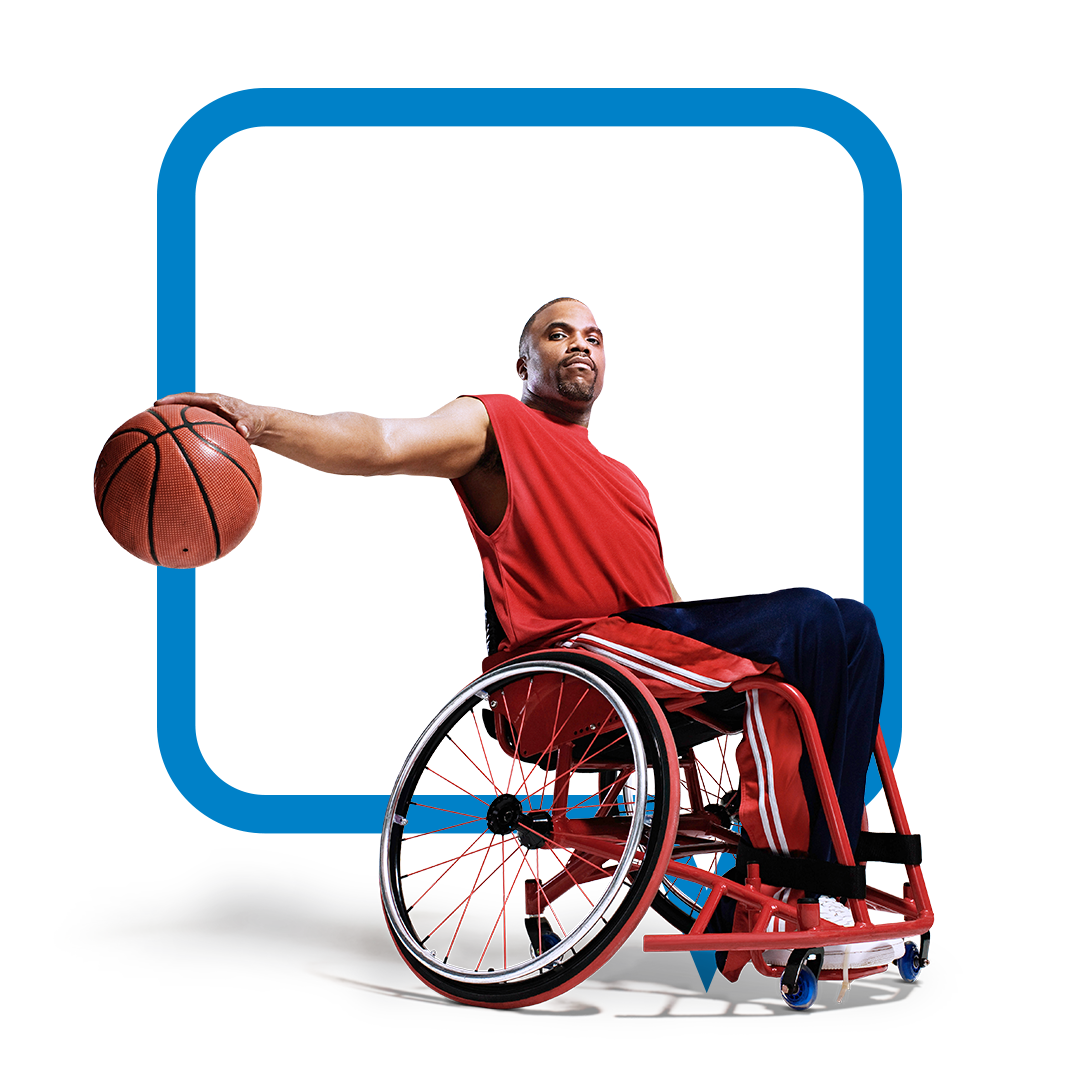Sports & Commerce.
Olympic and Paralympic Games without corruption: Is that even possible?
We are convinced that it is and we want to prove that it can be done – above all, by working in a transparent manner that meets the highest standards of good governance and compliance. The continuous involvement of society and all relevant supervisory authorities will also be key.
Unfortunately, we have seen repeated cases of corruption in connection with major sporting events in the past, including the Olympic and Paralympic Games. However, it is important to point out that those instances were not due to a general failure of the “system” but to the misconduct of individuals or groups of individuals.
Like many other sports federations, the International Olympic Committee (IOC) has been implementing a wide range of measures to combat corruption for quite some time. Such measures include among others the publication of financial information, the introduction of ethics rules, and the establishment of an independent ethics commission. The process of awarding the Olympic and Paralympic Games was also reformed.
At the German Olympic Sports Confederation (DOSB), we have set the highest ethical standards for ourselves on the road to the Olympic and Paralympic Games – from day one. We want to work in the most sustainable, cost-effective, and transparent way possible. We are open to scrutiny, and we will also take a critical stance if decisions made by third parties are not transparent to us.
How commercialised are the Olympic Games?
Of course, the Olympic and Paralympic Games – like many other major sporting events – are also designed for commercial gain. Modern Games are enormous logistical challenges that require the corresponding financial resources. Without sponsors and partners, it would be difficult to raise enough money to stage the Games.
To ensure that the Olympic Movement is not dominated by commercial interests, the IOC has strict rules and regulations regarding advertising and commercial activities. The IOC itself is a non-profit organisation and gives more than 90% of its marketing revenue to the Olympic Movement stakeholders to support the organisation of the Olympic Games as well as the Youth Olympic Games and to promote sports around the world. Only 10% of the marketing revenues are kept for IOC activities that are aimed at sports development and to cover the administrative costs of running the Olympic Movement.
Approximately 40% of the revenue generated by the Olympic Games is returned to the respective hosts. The rest is used to promote Olympic sports around the world. The IOC also invests in social programmes and infrastructure projects in host cities and countries. Such investments can have a positive impact on the local economies and communities.
How much do Olympic and Paralympic Games cost anyway?
In this context, an important distinction needs to be made: What costs are incurred for the actual staging of the Olympic and Paralympic Games, and what investments are made for long-term infrastructure development?
If we look at the staging of the Games alone, the costs for the Olympic Games currently amount to three to six billion Euros, while the Winter Games cost about half that amount. That is a lot of money, admittedly, but the expenditure is largely refinanced by the IOC itself (about two billion Euros in subsidies for the Olympic Games and about one billion Euros for Winter Games) and the Games’ revenues (for example, from domestic sponsors and ticket sales). Public funds are only used to pay for costs associated with safety and security as well as medical care.
If we also consider all the investments in (sports) infrastructure that are made in the context of the Olympic and Paralympic Games, the costs increase depending on the scope of the measures. That is one of the reasons why we have decided to forego the construction of costly new buildings in our renewed attempt to host the Olympic and Paralympic Games, which caused costs to skyrocket at many past Games.
The money saved will be invested in the modernisation of stadiums and gymnasiums, which is necessary at any rate, the expansion of roads and railways, the creation of housing, and the expansion of fiber optics: The return on investment will be long-term and will generate sustainable benefits for the entire country.
How much does a bid for the Olympic and Paralympic Games cost?
That ultimately depends on the (promotional) effort that the interested party is willing to put forth. The IOC’s reform processes have ensured significantly reduced bidding costs. While Munich had an estimated budget of more than 30 million Euros for its bid for the 2022 Winter Games, the two bidders for the 2026 Winter Games, Milan-Cortina and Stockholm, were able to submit bids amounting to less than five million Euros.
As soon as it is determined whether and for which Games edition the DOSB will apply, we will communicate the costs of our bid.
Will Germany have to provide unlimited financial guarantees for the Olympic and Paralympic Games?
No, that is no longer the case. For a long time, the contracts between the IOC and host cities were considered unbalanced and unfair. The financial risks of staging the Games, for example, rising costs for construction projects, were previously borne solely by the host cities. That fundamentally changed with the reforms to the award process that were introduced a while ago (Agenda 2020).
The changes to the Olympic Host Contract are intended to make the Olympic Games more transparent, sustainable, and fair, as well as to provide long-term benefits to the hosts. This includes measures to control and cap costs and to comply with sustainability standards, human rights, and gender equality, among other things. What was once a 7,000-page contract, has been reduced to 350 pages. These changes, though introduced a while ago already, will come into effect for the first time with the Paris 2024 Games.
Thus, there can no longer be any talk of unfair, unbalanced or unilateral agreements. The contract regulates the mutual rights and obligations in a more concise and clearer manner than before and represents a fair basis. The IOC’s motto also applies: “The Games adapt to the hosts. The hosts no longer adapt to the Games.”
Why aren’t e-sports part of the Olympic Games?
We cannot talk about the Olympic and Paralympic Games in 2036 and beyond, whilst ignoring e-sports. In our opinion, virtual sports are important for the further development of sports and sports federations. Therefore, we recommend that the matter be thought through in the context of a prospective bid to host the Olympic and Paralympic Games and, if possible, to develop it further in the interests of sports.
The IOC is already a step further in this regard, hosting its own “Olympic E-sports Week” for the first time this year. It is important to note that from the perspective of organised sports, we distinguish between electronic sports simulations (virtual sports), e.g., cycling in virtual worlds, on the one hand, and eGaming and other video or computer games (e.g., League of Legends and Counterstrike), on the other hand. In its entirety, eGaming does currently not meet the criteria that constitute and shape the sports and federation system under the umbrella of the DOSB.
We support the development of qualifications and pedagogical concepts for the use of eGaming in clubs. This will expand the range of non-sporting activities and the social responsibility of clubs and associations.
Why does the IOC award the Olympic and Paralympic Games to authoritarian regimes?
The IOC has continuously changed and modernised the criteria for the awarding of the Games since 2014. The process has long focused on matters such as respect for human rights, sustainable practices, and cost reduction.
However, it sometimes takes a while for the results of such extensive reform processes to become apparent. That is particularly true given the fact that all Games that we have seen in recent years were awarded before the IOC’s current reform process. Next year’s Games in Paris will be the first Games that are fully organised in the spirit of Olympic Agenda 2020 and the New Norm. They will be followed by Games in Italy (2026), the USA (2028), and Australia (2032), all democratic countries. We are convinced that the IOC will continue this path, and we see this as an ideal basis for a German bid.
Elite Sports.
Why are the Olympics so special for athletes?
The vision of the Olympic Games, in which athletes compete in a respectful, friendly, and global competition and abide by the same rules, is, from our point of view, always relevant.
Criticism is directed towards those who abuse them for their own purposes, but not towards the principal ideas. Even though sports have become more professionalised over time, the Olympic spirit of fair and honorable competition is still present and inspires athletes worldwide.
The Olympic and Paralympic Games offer athletes from different countries the opportunity to showcase their skills and talents in an environment of fair competition. Competition at the highest level motivates them to do their best and set new records For most athletes, the Olympic and Paralympic Games represent the pinnacle of their careers.
What are the benefits of “home Games” in elite sports?
When the Games are held in the athletes’ own country, they can inspire young athletes to pursue their own sporting goals and reach their potential. The visibility of sports and the presence of international athletes can help increase the popularity of certain sports and spark interest in sports among young people.
During the Olympic and Paralympic Games, elite sports are in the media spotlight. This coverage can also help promote competitive sports as a whole and spark people’s interest in different sports.
In addition, when sports facilities are upgraded to host the Games, elite sports benefit in the long-term as the facilities provide first-class training and competition facilities that can be further used after the Games have ended.
Popular Sports.
How can the Olympic and Paralympic Games benefit my club?
The Olympics can have a major positive effect on grassroots and club sports as a whole. Elite sports can generate enthusiasm and interest, and they can shine a light on sports that are usually underrepresented in the media. Role model athletes motivate young people to try out new sports at their respective clubs, even beyond the realm of soccer.
In addition to generating fundamental enthusiasm, the Olympics have the potential to trigger concrete measures in the political and economic spheres, e.g., investment in sports facilities, programmes that promote volunteer work, and financial support for clubs. Bei Olympia wird deutlich, dass es ohne die keinen Spitzensport geben kann.
The Paralympics are just as important for sports across the board. The visibility and recognition of the sporting achievements of athletes with disabilities can promote acceptance and inclusion in popular sports. Furthermore, the Paralympic Games can motivate people with disabilities to participate in grassroots sports in the first place.
In the years leading up to the 1972 Olympic Games in Munich, for example, the Trimm-Dich movement emerged in Germany, which attracted many people to sports for the first time and had a lasting impact on the range of sports clubs nationwide. Trimmy, the mascot developed for the movement, is still the mascot of the DOSB today.
As we move toward a prospective bid, we will also consider, above all, the added value that the Olympic and Paralympic Games can create for grassroots sports and how problems can be solved at the grassroots level.
Will a bid help us to get more young people interested in volunteering again Will the digitalisation of association work be accelerated as a result of the impetus created by a bid? Those are just two of the numerous questions we want to address. What’s on your mind? Let us know.
Do school sports programmes benefit from the Games?
Whether it is team play, respect, or health: Sports convey values that should be taught to children from the youngest age. Hosting the Olympic and Paralympic Games in one’s own country can be an important factor in improving physical education – both qualitatively and quantitatively.
A third weekly hour of physical education still has not been introduced nationwide (on the contrary, the trend goes towards a reduction), the sports facilities at many schools are outdated, and children and young people fail to exercise enough. On the one hand, the Olympic and Paralympic Games can provide an impetus to reintroduce the youngest to sports and exercise; on the other hand, they can draw media and political attention to the issue.
Will my sports field or gymnasium be renovated as a result of the Olympics?
There is always a chance of that happening. Germany is currently struggling with a huge investment backlog in the area of sports facilities. Overall, the need for refurbishment is in excess of 30 billion Euros. Hosting the Olympic and Paralympic Games could, therefore, provide an important, early incentive to gradually reduce this refurbishment backlog. That is particularly true since the decision to only use existing sports facilities for the bid eliminates the need to use significant funds that are urgently needed elsewhere. It is important to the DOSB that, once the Olympic and Paralympic Games have been awarded, a plan for the sustainable and accessible refurbishment of the sports infrastructure is drawn up across Germany that goes beyond the sports facilities needed for the Olympics and has an impact at the grassroots level throughout the country.
Why don't we directly invest the money in grassroots sports?
That would also be an option, but it would only have a local impact We see the Olympic and Paralympic Games as a more sustainable driver that can root sports, and all of its associated values, much deeper in society and subsequently develop greater momentum than direct investment. Irrespective of that, all investments in the Games must, of course, be reviewed with regard to their sustainable contribution to grassroots sports.
How do the Games impact volunteer work?
As the world’s largest multi-sport event, the Olympic and Paralympic Games put sports, their diversity, and their values at the centre of the world’s attention. The Games offer a great opportunity to showcase the many facets of volunteerism – no matter whether you are a coach, a referee, or a treasurer. – no matter whether you are a coach, a referee, or a treasurer.
There is always a great deal of interest in volunteer work at major sporting events in Germany. With the right measures and offers, “home Games” can succeed in presenting the numerous advantages of volunteerism to a broad audience, thereby winning them over as long-term volunteers in sports and beyond.





 Your Ideas
Your Ideas 



